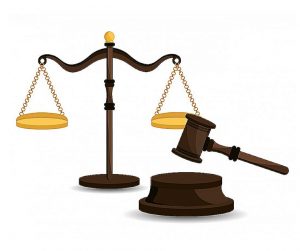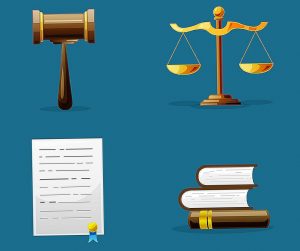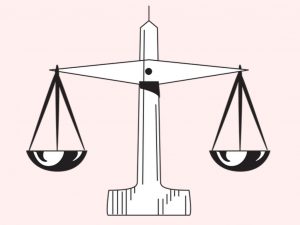In this short article, i am going to share with you the classifications of offences in Nigeria. If you have been searching the internet to know how offences are classified, I enjoin you to read this post carefully because everything you need to know about offences has been discussed here already. But before we move to the crux of this topic, I would like to define what an offence it.
Also read:
- How to answer law problem questions using IRAC method
- Richest lawyers in Nigeria 2020: Top 10
- How to prepare and any examination without actually reading
- Richest lawyers in India 2020: Top 10
What is an offence?
According to Section 2 of the Criminal Code, an offence is defined as an act or omission which is rendered punishable by some legislative enactment. In every offence, there is usually two elements namely; the mental and physical element.
Offences can be classified in a number of ways. Some classifications may be made for the sake of convenience and may have no legal significance. For example, the division of offences into those that are against the person, those against property and those against the state, is merely a rough division for academic purposes.

In English law, there is also the classification into common law and statutory offences. But in Nigeria, all crimes are statutory, and to divide crimes into those deriving from the code and those deriving from other legislation would have no value.
Other classifications are significant in that, different legal consequences can attend different types of offence. Thus, the procedure of trial can differ according to whether an offence is triable summerily or on information.
Top 3 Major Classifications of Of fences In Law And Their Implications
From section 3 of the Criminal Code, offences are classified into three namely;
- Felonies;
- Misdemeanour;
- Simple offences;
Above are the basic classifications of offences in Nigeria. As we continue, i will explain (with examples), the three classification of offences and how Nigerian courts will normally react in each cases. I enjoin you pay attention to every information contained below.
1. Felony:
In Nigeria, offences which are termed “Felony” are deemed to be more serious offences. The term felony is derived from English Law. They are those offences which are punishable with three years’ imprisonment or more. In other words, offences which are punishable with less than three years are not Felonies.
It should be noted however, that the fact that the court feels that a felony merits little or no punishment does not alter the fact that it is a felony; and the consequences which attend on a felony, but not on a Misdemeanour or a simple offence, must apply.

One of the predominant rule associated with felonies is the rule in Smith v Selwyn. This rule states that; if a plaintiff brings a civil action which is founded on a felony, the court will stay the proceeding until the felony has been prosecuted.
This rule applies to felonies only. The rationale is tha; where an offence is serious, an offender should first be brought to justice by public law before an individual can proceed with a civil claim.
2. Misdemeanour:
The next classification of offences is known as Misdemeanour. According to the criminal code, misdemeanours are those offences punishable with six months imprisonment up to three years. In other words, any offence punishable with at least, 6 months but not more than 3 years is a misdemeanour.
In the legal system of Nigeria, a misdemeanour is usually seen as a less serious offence. It should be noted however, that at times a Misdemeanour may be far more serious in its effects than a felony.
Take for instance, a seditious pamphlet advocating the overthrow of the government is a misdemeanour, but is seems more serious than a situation where one steals N5 from the market.
More so, in procedural law, the power of a private person to arrest a suspected Misdemeanant is more limited than his power to arrest a suspect felony. This can be seen from Section 12 of the Criminal Procedure Act.

3. Simple offences;
The last classification of offences are simple offences. They are the least are offences the court will consider serious. Simple offences are punishment for less than six months.
Implications of the classification of offences
The implication of the classification of offences into Felonies, Misdemeanours, and Simple Offences are first that it is only in respect of felonies that there are such offence as compounding and neglect to prevent the commission of an offence.
Secondly, the punishment for attempt or conspiracy to commit offences and for being an accessory after the fact will vary according to whether the substantive offence contemplated or committed was a felony, Misdemeanour or a simple offence.

Thirdly, there are a number of defences available to charges of assault or more serious type of harm where the assault or more serious types of harm where the assault was committed by public officer or private citizens in preventing the escape of felons.
Also read:
- Advantages and Disadvantages of Tribunal System Over Court
- Source of Nigerian Laws: 5 major sources
- Pillars of democracy: 4 essential pillars of democracy
- Donoghue v Stevenson: Facts, Issues and Decision of the court
Okay! This is where I am going to end today! I hope you now understand the classification of offences in Nigeria and their differences. It is pertinent to note that the classification above is based on section 3 of the Criminal Code. Thus, it is applicable in only Southern Nigeria.
Hope this article was helpful? If you want to ask any question concerning the classification of law I just explained below, I enjoin you to use the comment section below this post. Trust me, I will give you a reply as soon as possible.

Edeh Samuel Chukwuemeka, ACMC, is a lawyer and a certified mediator/conciliator in Nigeria. He is also a developer with knowledge in various programming languages. Samuel is determined to leverage his skills in technology, SEO, and legal practice to revolutionize the legal profession worldwide by creating web and mobile applications that simplify legal research. Sam is also passionate about educating and providing valuable information to people.
Thank u very much I need more about Police acts and Police duties and criminal law anything about Nigerian Police force